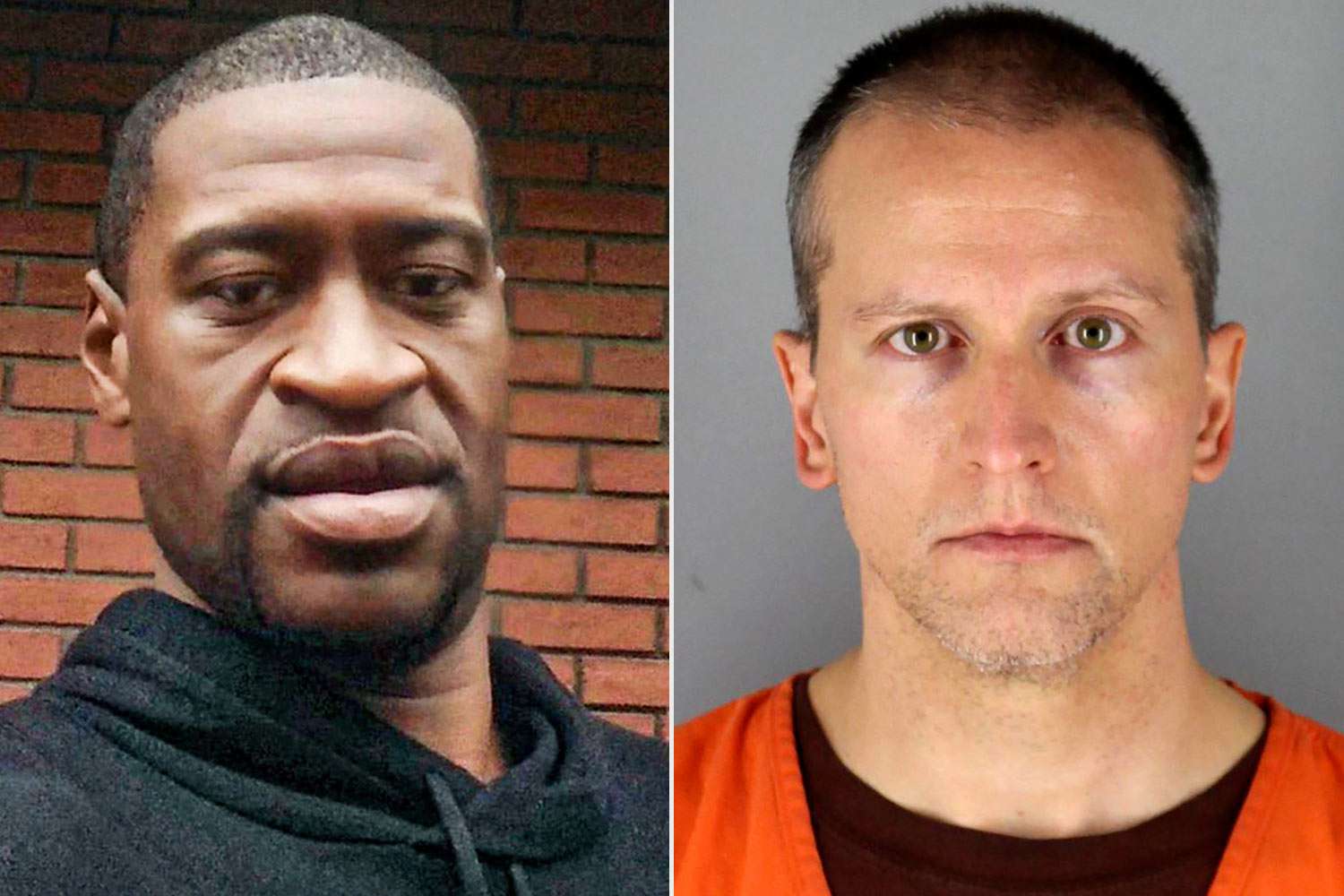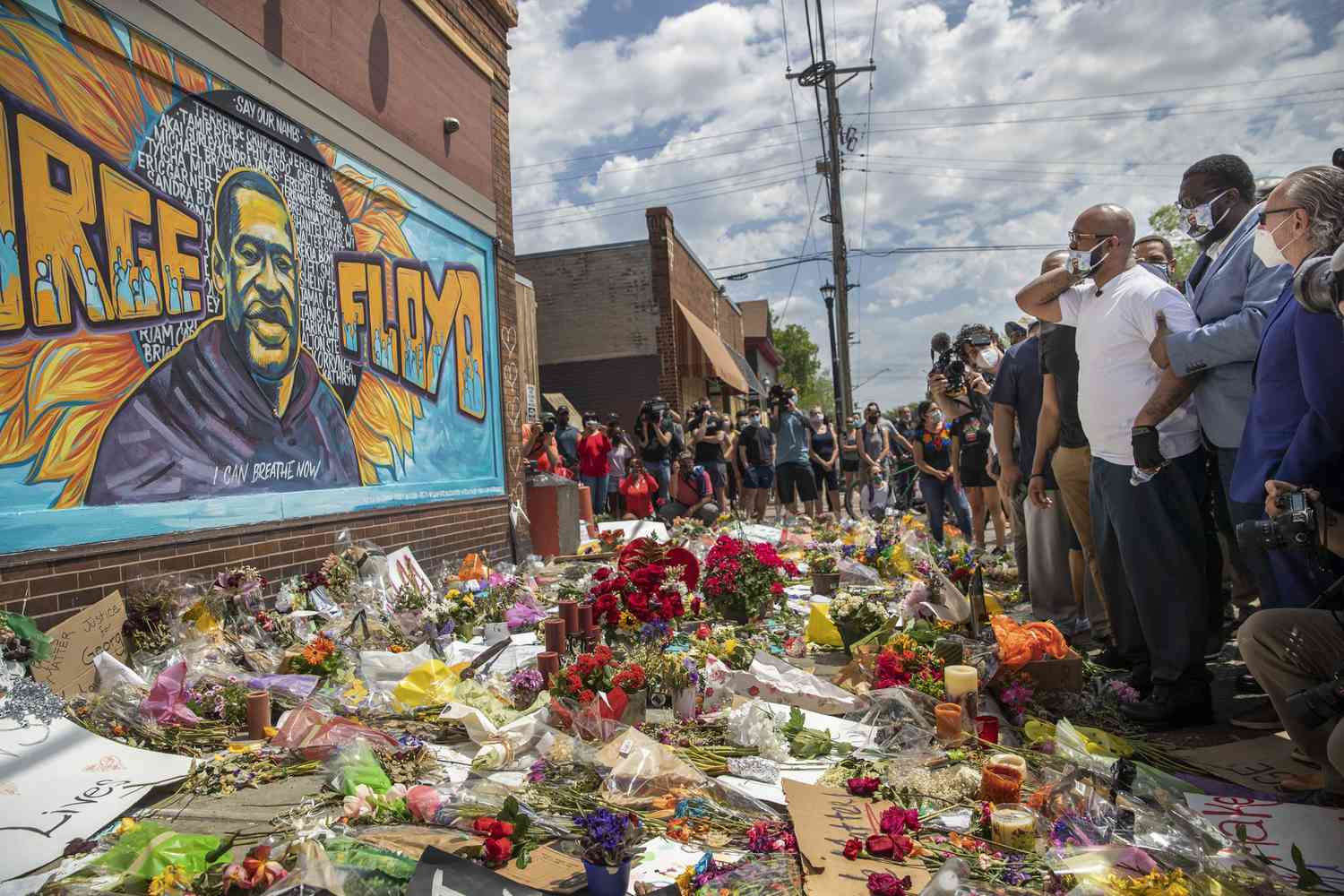Testimony Begins in Murder Trial of Ex-Police Officer Charged in George Floyd's Killing

Ten months after George Floyd's cry of "I can't breathe" echoed around the world, testimony begins Monday in the murder trial of a white former Minneapolis police officer charged with suffocating the Black man with a knee to his neck for nearly nine minutes.
Prosecutors, led by Minnesota Attorney General Keith Ellison, are asking newly seated jurors to consider three options for a possible conviction: second-degree murder, third-degree murder, or manslaughter.
The former officer, Derek Chauvin, 44, has pleaded not guilty.
The closely watched case — resulting from the May 25 detention of Floyd, 46, for allegedly spending a counterfeit $20 bill at a convenience store — has already proven to be a flashpoint, with Floyd's death sending millions of people across the country into the streets and propelling the Black Lives Matter protest movement against police brutality.
Bystander video that went viral recorded the entirety of Chauvin's actions: With Floyd handcuffed and face-down on the pavement, the officer pressed his knee on Floyd's neck for 8 minutes and 46 seconds.
Both the Hennepin County medical examiner and a private pathologist hired by the Floyd family concluded that Floyd died by homicide.
President Biden has since invoked Floyd's name to speak out against racial injustice. And earlier this month the U.S. House of Representatives passed and sent for Senate consideration the George Floyd Justice in Policing Act, a wide-ranging bill that aims to "hold law enforcement accountable for misconduct in court, improve transparency through data collection, and reform police training and policies," according to the document.
In the midst of jury selection that began March 8, the City of Minneapolis also announced a $27 million settlement with Floyd's family in a civil lawsuit brought against the city, Chauvin and three other former police officers present at the time of Floyd's killing.
Now jurors themselves will have their say.
Fifteen have been chosen, including two alternates, plus one who will be dismissed before opening statements begin. (During jury selection, two people previously picked for the jury were dismissed, after they told Hennepin County Judge Peter Cahill that their knowledge of the settlement might influence their views, reports CBS News.)
Six men and nine women make up the panel. Nine identify as white, four as Black, and two as mixed-race.
Ben Crump, a spokesman and attorney for the Floyd family, said in a statement after the jurors were picked that he hoped for a "just verdict."
"This is not a hard case," Crump said. "George Floyd had more witnesses to his death than any other person ever — white or Black. We all saw the same thing — the indisputable and unjustified torture and murder by a police officer of a Black man who was handcuffed, restrained and posed no harm. If George Floyd had been white, the facts would be undisputed and justice would be swift. We expect the same for George."
In an earlier court filing, Chauvin's defense attorney, Eric J. Nelson, wrote that Chauvin "did exactly as he was trained to do." He added: "Any risk created by Mr. Chauvin's conduct lies largely with those who train [Minneapolis Police Department] officers and those who approve such training."
Nelson did not respond to PEOPLE's request for comment.
Want to keep up with the latest crime coverage? Sign up for PEOPLE's free True Crime newsletter for breaking crime news, ongoing trial coverage and details of intriguing unsolved cases.
But in filing the criminal charges against Chauvin last June, Ellison — the first Black man to hold the office as Minnesota's attorney general — said Chauvin and three other former officers charged with related crimes "caused Mr. Floyd's death while using unlawful and excessive force in arresting Mr. Floyd."
Those other officers on the scene — J. Alexander Kueng, Thomas Lane and Tou Thao — all were charged with aiding and abetting second-degree murder and second-degree manslaughter. They will be tried apart from Chauvin this summer.
Each also has each pleaded not guilty.
Ahead of Chauvin's trial, Twin Cities law enforcement officials unveiled what they called Operation Safety Net to assure order during and after the trial as a result of the protests — some of them violent and accompanied by looting — that broke out across the region in the wake of Floyd's death. A security perimeter has gone up around the courthouse, Minneapolis City Hall and other government buildings, reported USA Today.
The goal is "prevention of damage to property and crimes, as well as also ensuring First Amendment constitutional rights for those who wish to peacefully assemble and demonstrate," Minneapolis Police Chief Medaria Arradondo said at a news conference ahead of jury selection, reported TV news station KARE.
Included in the multimillion-dollar settlement with the Floyd family is $500,000 to enhance the neighborhood where Floyd was killed and where resulting protests erupted. In welcoming the settlement, the family's attorneys applauded police reforms put in place by Minneapolis after Floyd's death, as well as the city's commitment to further reforms.
Among the cited changes were a requirement for the city's police officers to keep body-worn cameras on all the time, "a policy for officers to de-escalate non-threatening encounters with citizens by disengaging or walking away," and recruitment of officers "that favors those who live in the areas they would police and who have social service experience," according to a statement to PEOPLE from the Floyd attorneys.
Chauvin's trial is expected to last about a month.
Source: Read Full Article


